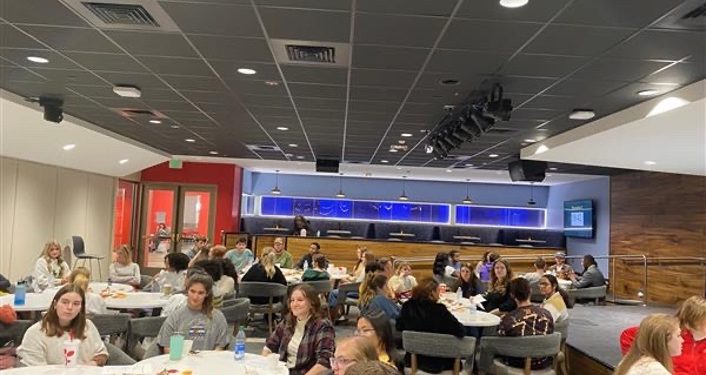Constantly striving towards diversity throughout campus, Samford University recently announced its new minor in Race, Ethnicity, and Social Justice. Affirmed in April of 2021, this minor is now available for any students interested in studying racial justice and equality.
Alongside the Reconciliation Memorial, commissioned in 2019, the addition of this new minor illustrates the importance of recognizing other cultures and understanding how to traverse interactions positively.
The minor will consist of courses from a wide array of departments, such as sociology, history, political science, communication studies, geography, biblical and religious studies, and more.
These departments help cultivate an environment for students to gain applicable knowledge about the history, social and political context, and culture of racial and ethnic groups including but not limited to African Americans, Hispanic Americans, Native Americans, Asian Americans and other historically marginalized groups.
Within the structure of the minor, students will need to fulfill 20 credits tailored to the curriculum. Four of the 20 required credits must be fulfilled through one of two core classes, which are Sociology of Race and Ethnic Relations, or The African American Experience.
After choosing one of these two courses, the other 16 credits are determined by the students’ interests. The bulk of the minor must be taken at Samford University in order to complete the program, but the four credits from the core class of the minor are transferable.
Although the minor is housed in the Sociology Department, students of all majors and minors find the courses that form this minor intriguing.
Veronica Weathers, a junior in Journalism and Mass Communications with a minor in History, shared her support of the new minor.
“I think I definitely would take some of the courses listed. Especially ones pertaining to the Civil Rights Movement or Alabama and Southern Culture,” Weathers said. “I think I’ve already had a bit of background taking U.S. history classes and thankfully Samford history professors have been very open and honest about not excluding or minimizing any aspects of U.S. history.”
In addition to wanting to take the classes offered through the minor, students expect to see more awareness, cultural sensitivity, and appreciation of other cultures.
Rhyan Nunn, a sophomore Psychology student with minors in Sociology and Neuroscience, also offered her opinion on the new minor.
“I feel like learning about everyone’s background and not just the majority background is important because minorities still go to school and even though we don’t look the same we still have the same access,” Nunn said. “Learning about how access was taken away from minority groups and how it blocks people from doing certain things enables real change to take place and it starts by educating people on the problem rather than working towards a solution.”
Students also expressed how they would like to see the content applied through more than just the minor.
Egypt Davis, a senior Technical Theater major, hopes to see the subject explored in other course curriculums as well.
“I definitely wish it was more integrated into regular classes like CA, CP, or Rhetoric,” Davis said. “Therefore, the students have to interact with it instead of it being a separate minor that people can choose to take. As a person of color, I don’t get to choose whether or not I want to interact with Aristotle, Plato, or any historical white [figure’s work] and their history. I think if it was integrated for all students it would be a lot more valuable.”
Though the introduction of the new minor has been met with a welcoming atmosphere, some students voiced their concerns about the logistics of the minor.
Sophomore journalism student Kennedy Russell expressed uneasiness at how students across campus will receive certain aspects of the minor’s subject.
“I have concerns that the classes may not be taught by professors who look like the identified marginalized groups. I think that it’s different to learn about it, but experience is something that you would need to be able to teach some of these courses. I don’t want my peers to take the classes or the minor as a joke or even find one thing that’s negative and generalize the minor off of that,” said Russell,.
Nevertheless, most students seem to support the new minor as a whole.
Murphy Igbakpa, a sophomore neuroscience student, is happy with Samford’s progress in supporting diversity among its community.
“In a sense, I say it’s more of an addition to what we already have. I think Samford so far has done a great job with diversity and I feel this minor is making more progress in broadening the culture to diversity,” Igbakpa said.
If students are interested in declaring this minor or taking a course from it, they can reach out to their academic adviser or explore more about it on Samford University’s website.






